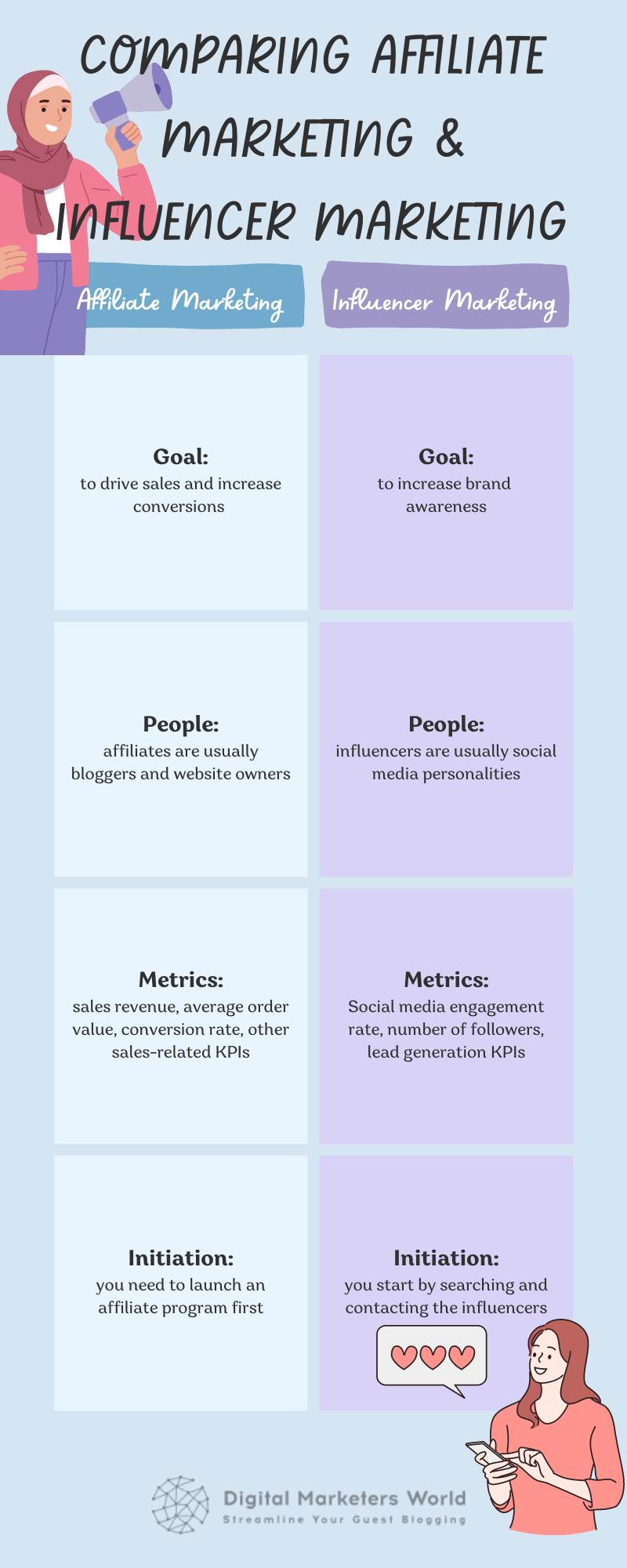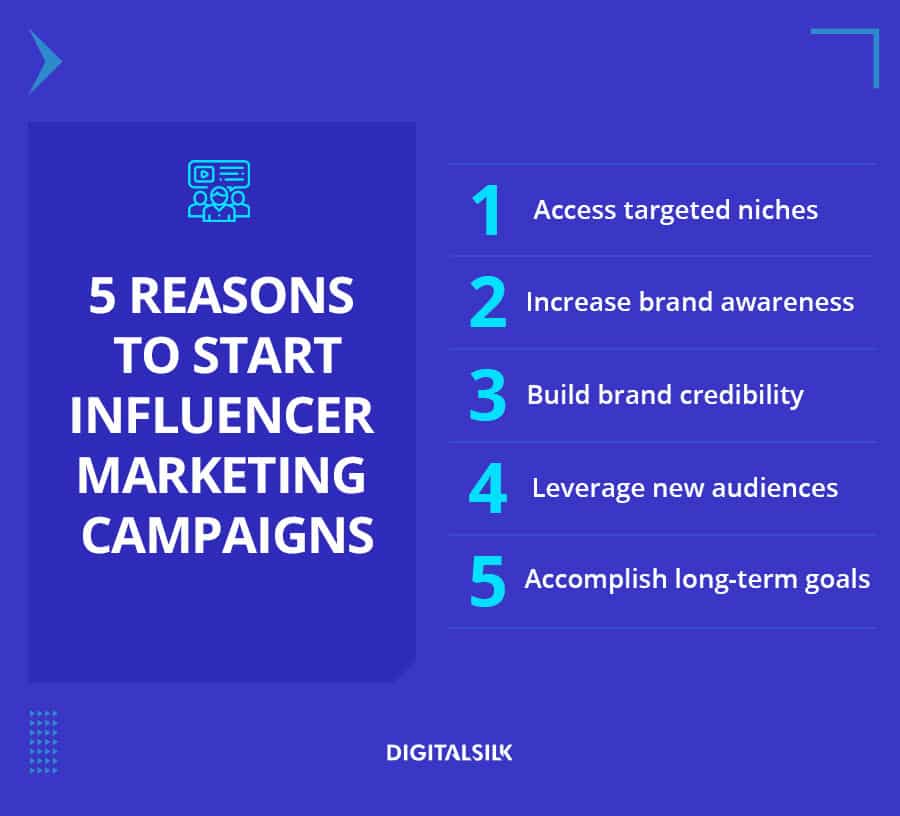Affiliate Marketing involves promoting products for a commission on sales. Influencer Marketing uses social media personalities to endorse products.
Affiliate Marketing and Influencer Marketing are two powerful strategies in digital marketing. Both aim to increase brand visibility and drive sales. Affiliate Marketing relies on individuals or companies to promote products, earning a commission for each sale they generate. Influencer Marketing, on the other hand, leverages the reach of social media influencers to endorse products to their followers.
While both methods can be effective, they cater to different audiences and marketing goals. Understanding the nuances of each can help businesses choose the right strategy to maximize their marketing efforts and ROI.
Introduction To Affiliate And Influencer Marketing
Affiliate marketing involves promoting products for a commission, while influencer marketing leverages personal influence to drive engagement. Both strategies offer unique advantages, catering to different marketing goals and audience interactions.
The Rise Of Digital Marketing Strategies
Digital marketing has grown rapidly. Many businesses use it to reach customers online. The internet offers many ways to promote products. Two popular methods are affiliate marketing and influencer marketing.
Basics Of Affiliate And Influencer Marketing
Affiliate marketing involves partners who promote products. They earn a commission for each sale. These partners use unique links to track sales. Influencer marketing uses people with a large following. They promote products to their fans. Influencers share personal experiences with products.
Both methods aim to increase sales. They use different strategies to reach this goal. Affiliates focus on tracking sales. Influencers focus on building trust with their audience.

Credit: ecommercefastlane.com
Core Objectives Of Each Strategy
Affiliate marketing focuses on generating sales or leads. This strategy uses affiliate links to track sales. Affiliates earn a commission for each sale. The goal is to drive traffic to the merchant’s site. Affiliates often use blogs, email marketing, and social media. Success is measured by the conversion rate. This means the number of visitors who make a purchase.
Influencer marketing aims to build brand awareness and trust. Influencers share products with their followers. This can lead to higher engagement. The focus is often on brand visibility rather than direct sales. Influencers use social media posts and stories. They can also create videos and blogs. Success is measured by engagement metrics like likes, shares, and comments.
Payment Models And Compensation
Affiliate marketers earn money through commissions. They get paid based on sales or leads. If they drive a sale, they earn a percentage of that sale. Some programs offer fixed amounts per sale or lead. It depends on the company’s policy. This means income can vary widely. High performers can earn significant amounts.
Influencers get paid through sponsorship deals. Brands pay them to promote products or services. Payments can be one-time or ongoing. Influencers with a large following can earn more. Brands may also offer free products as part of the deal. Payment depends on influence and reach. Influencers with high engagement get better deals.
Approaches To Audience Engagement
Affiliate marketers use affiliate links to promote products. These links lead to genuine product reviews. This builds trust with the audience. People feel safe clicking on these links. Honest reviews make the audience come back for more.
Influencers have a strong relationship with their followers. They leverage this relationship to promote products. Their recommendations are trusted by many. People look up to influencers for advice. This creates a bond with the audience. Followers often buy products based on influencer suggestions.
Performance Tracking And Metrics
Tracking the success of affiliate marketing is easy. Use unique affiliate links to monitor clicks and sales. Detailed reports show which affiliates perform best. Sales and conversion rates are key metrics. Affiliates earn commissions based on their performance. These metrics help in optimizing future campaigns.
Measuring the impact of influencer campaigns involves multiple metrics. Engagement rates such as likes, shares, and comments are important. Reach and impressions indicate how many people saw the content. Sales conversions from unique promo codes track actual purchases. Brand mentions and hashtag usage also provide insights. These metrics show the overall effectiveness of the campaign.

Credit: digitalmarketersworld.com
Choosing The Right Strategy For Your Business
Affiliate marketing is great for businesses. It works well if you have a tight budget. You only pay affiliates when they make a sale. This makes it cost-effective. It can also boost your reach. Affiliates can promote your products to new audiences. They can also provide reviews and testimonials. This helps build trust with customers.
Influencer marketing is ideal for brand awareness. Influencers have a large following. They can quickly spread your brand message. It is also good for niche markets. Influencers often have dedicated followers. They trust the influencer’s opinions. This can lead to higher engagement. Influencer marketing can also be visual. Platforms like Instagram and YouTube are perfect for this.

Credit: www.digitalsilk.com
Frequently Asked Questions
What Is The Difference Between Affiliate Marketing And Influencer Marketing?
Affiliate marketing involves promoting products for a commission. Influencer marketing leverages social media personalities to promote products for fees or sponsorships.
Do Influencers Use Affiliate Marketing?
Yes, influencers frequently use affiliate marketing. They earn commissions by promoting products through unique affiliate links. This strategy boosts sales and provides influencers with an income stream.
Is Affiliate Marketing The Same As Influencing?
Affiliate marketing and influencing are not the same. Affiliate marketing involves promoting products for commissions. Influencing focuses on building and engaging an audience.
What Is The Difference Between Marketing And Influencer?
Marketing involves promoting products or services to a target audience. Influencers use their personal brand to promote products.
What Is Affiliate Marketing?
Affiliate marketing involves promoting products and earning a commission on sales generated through your referral links.
What Are the Key Differences Between Influences and Affiliates in Marketing?
In marketing, understanding the key differences between influences and affiliates is crucial in navigating the key factors in marketing environment. Influencers are individuals who have a strong personal brand and can sway purchasing decisions, while affiliates are typically focused on driving traffic and earning commissions through referrals. Both play important roles in the marketing ecosystem.
Conclusion
Choosing between affiliate marketing and influencer marketing depends on your goals and audience. Both strategies offer unique advantages. Evaluate your needs, budget, and target market. Experiment with both to see which yields better results. By understanding their strengths, you can effectively boost your brand’s reach and profitability.
